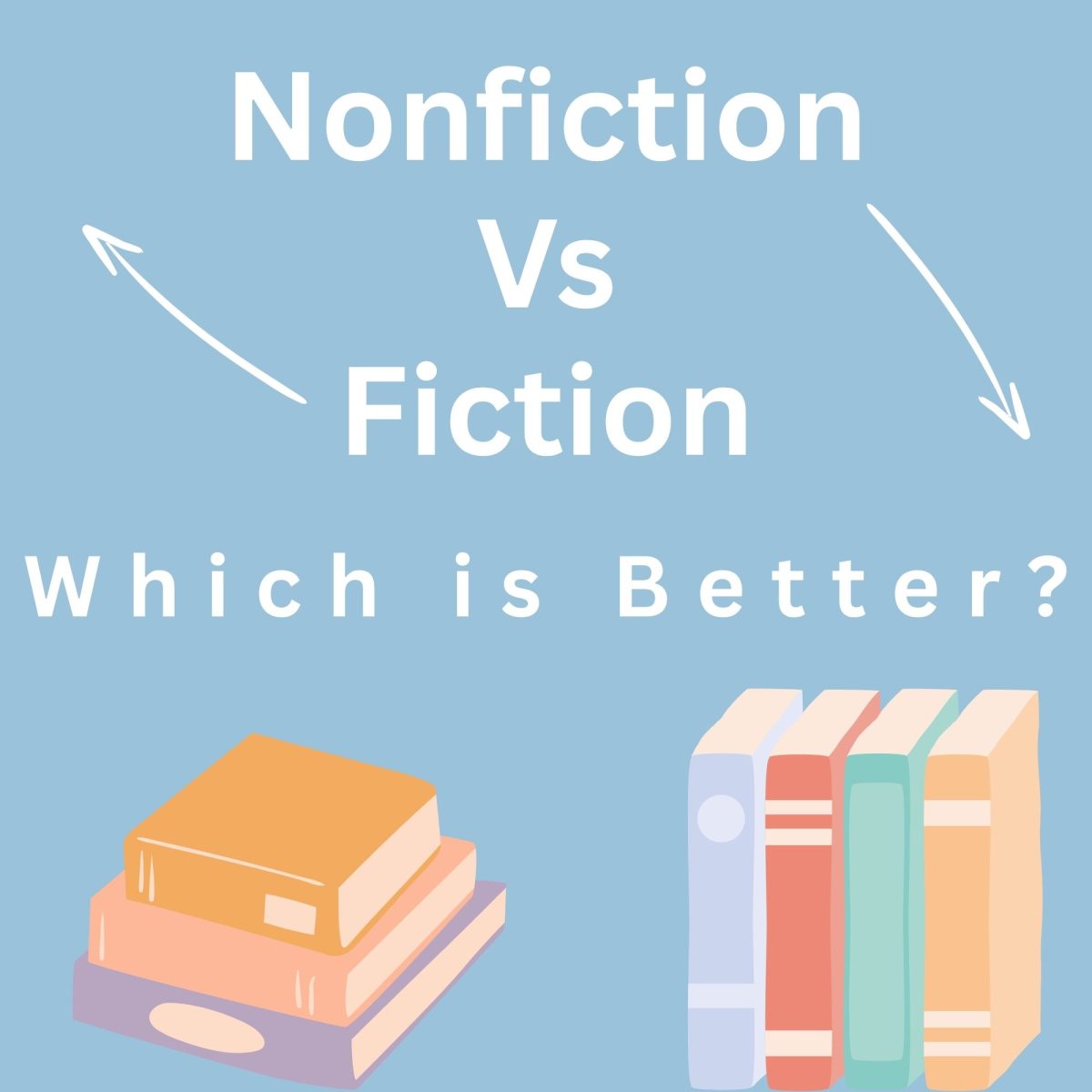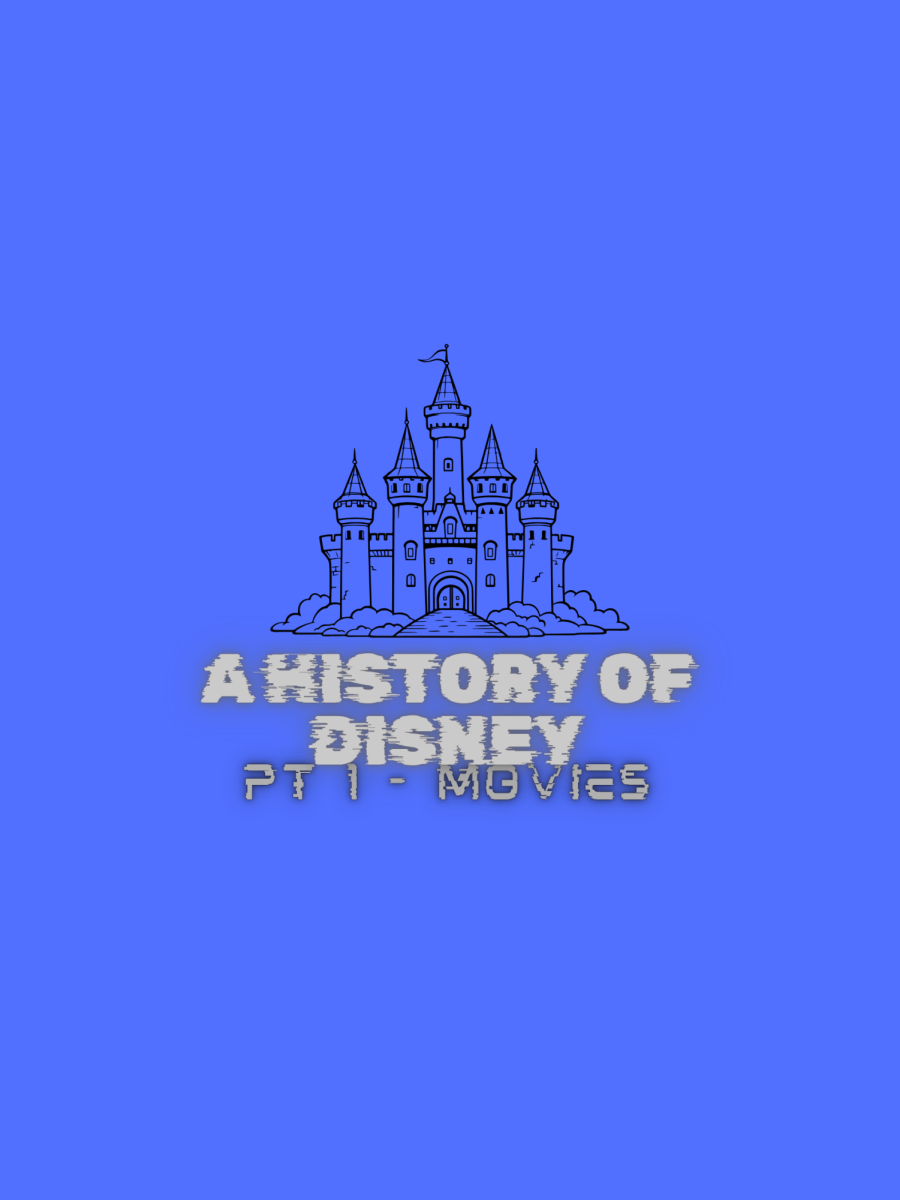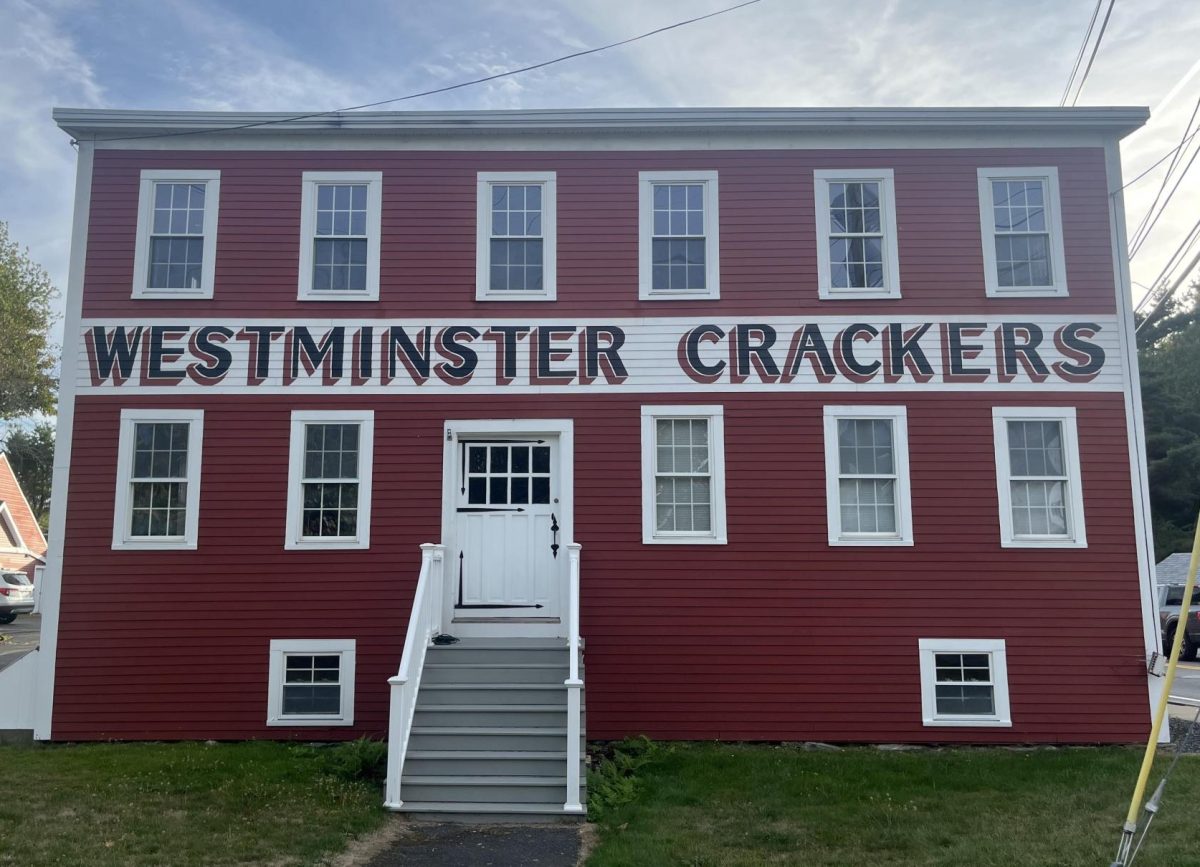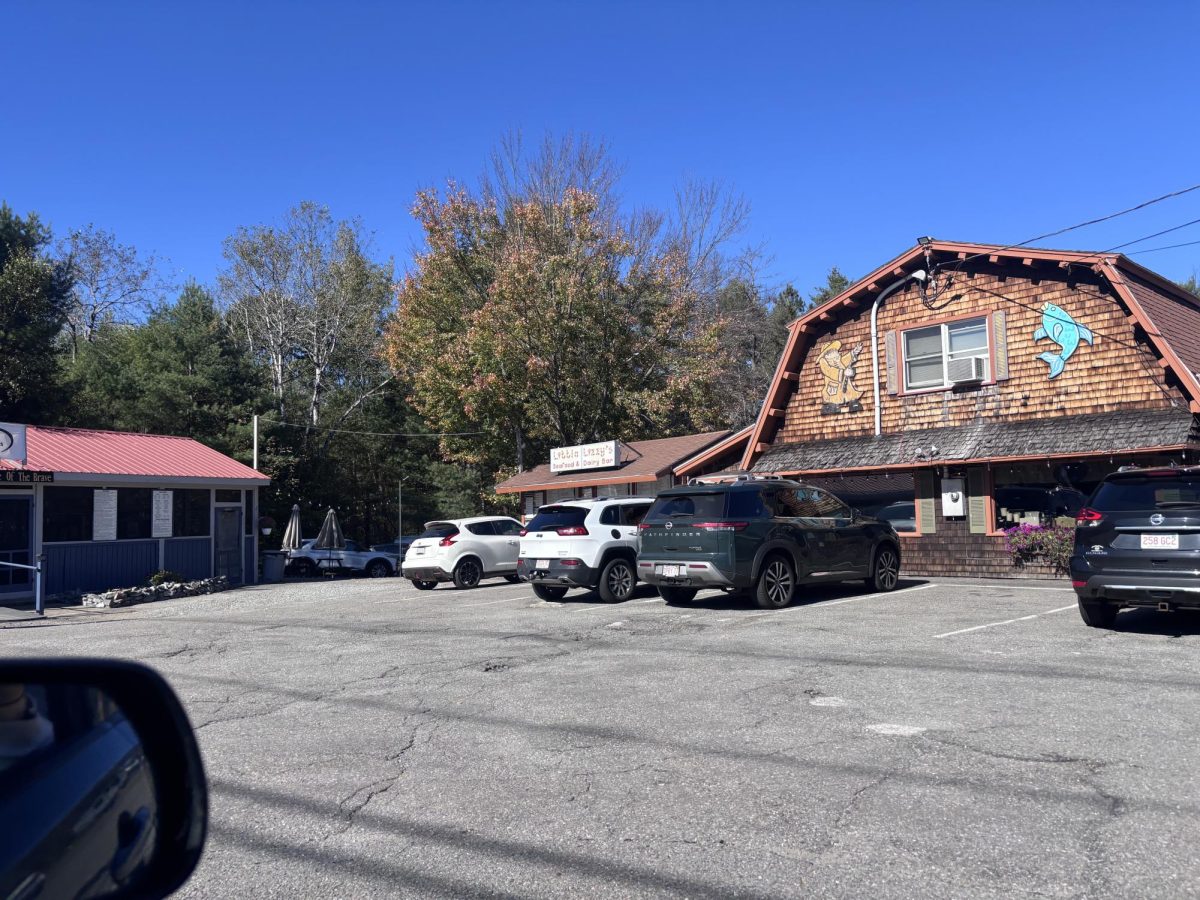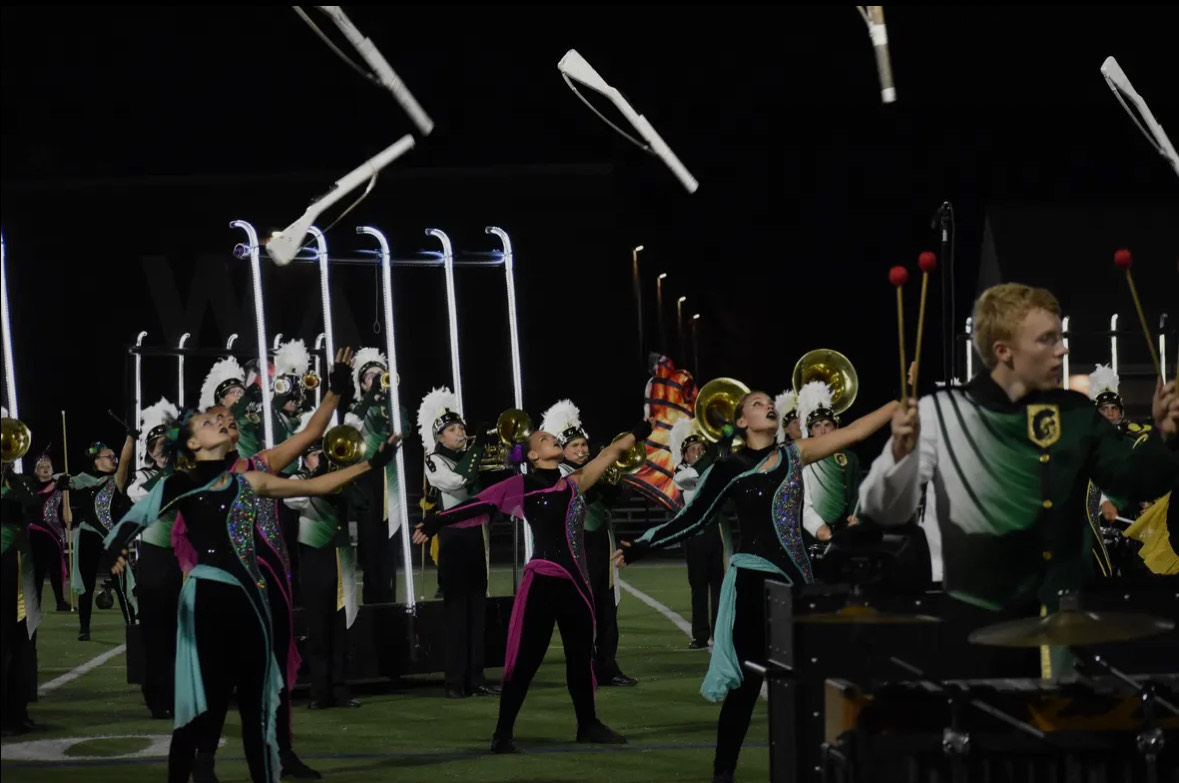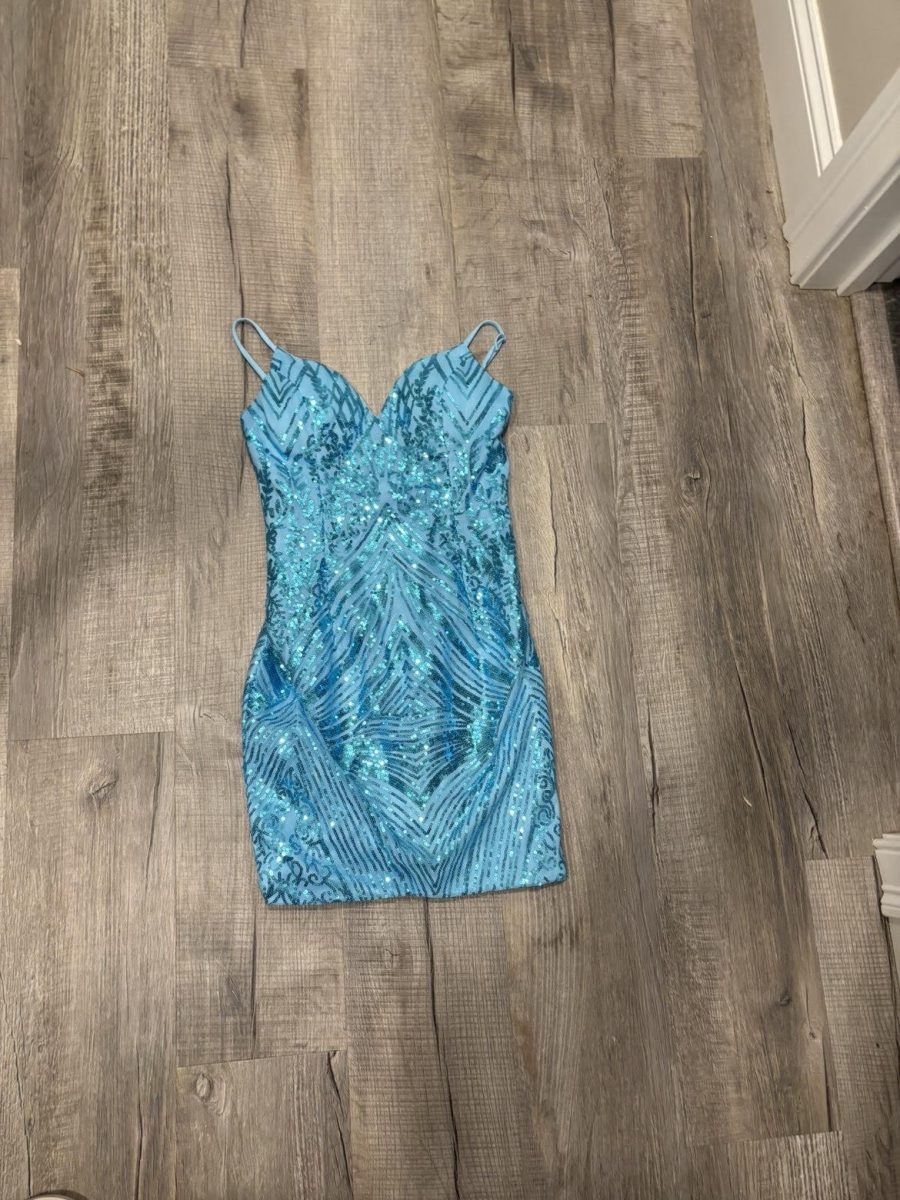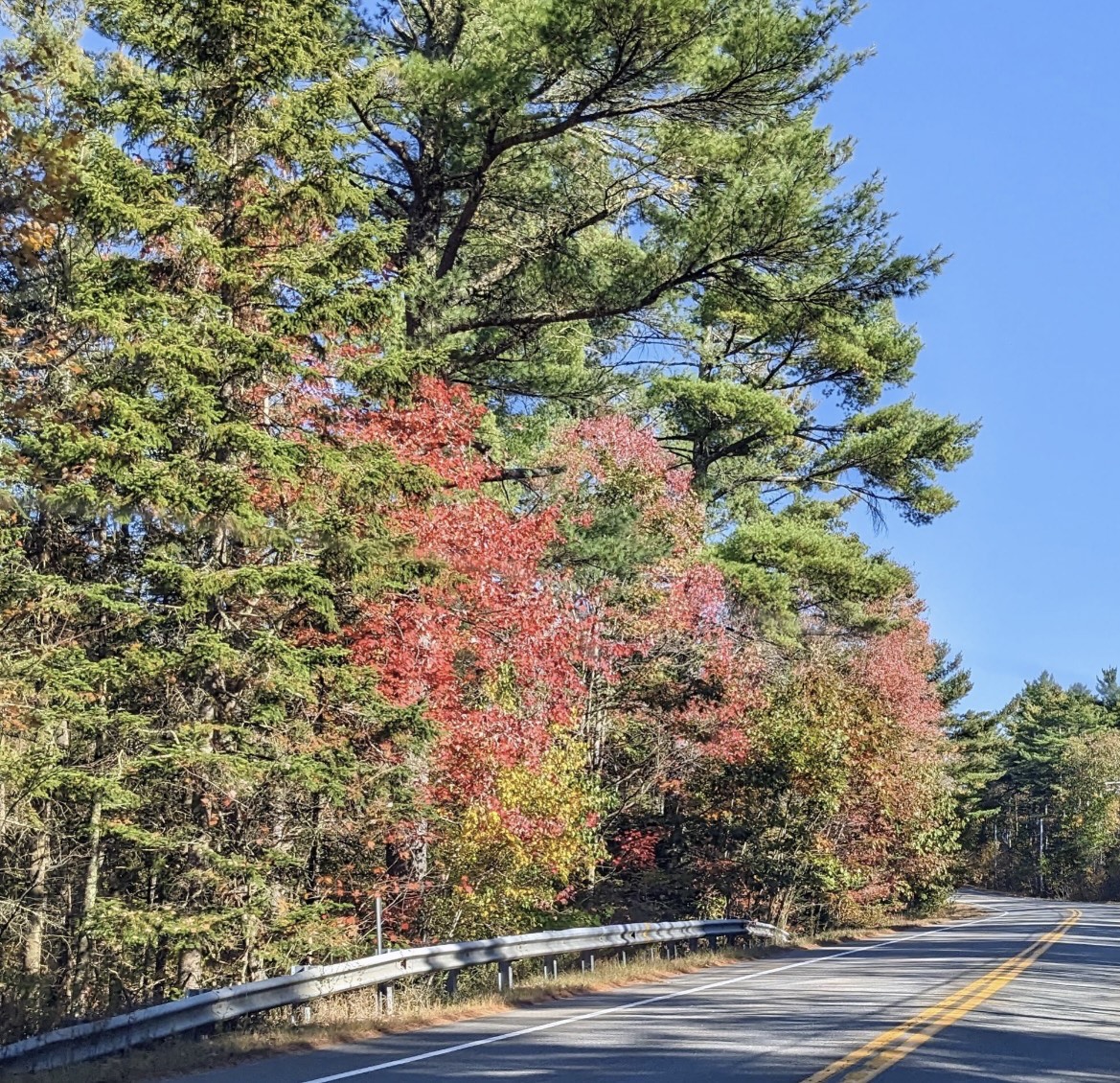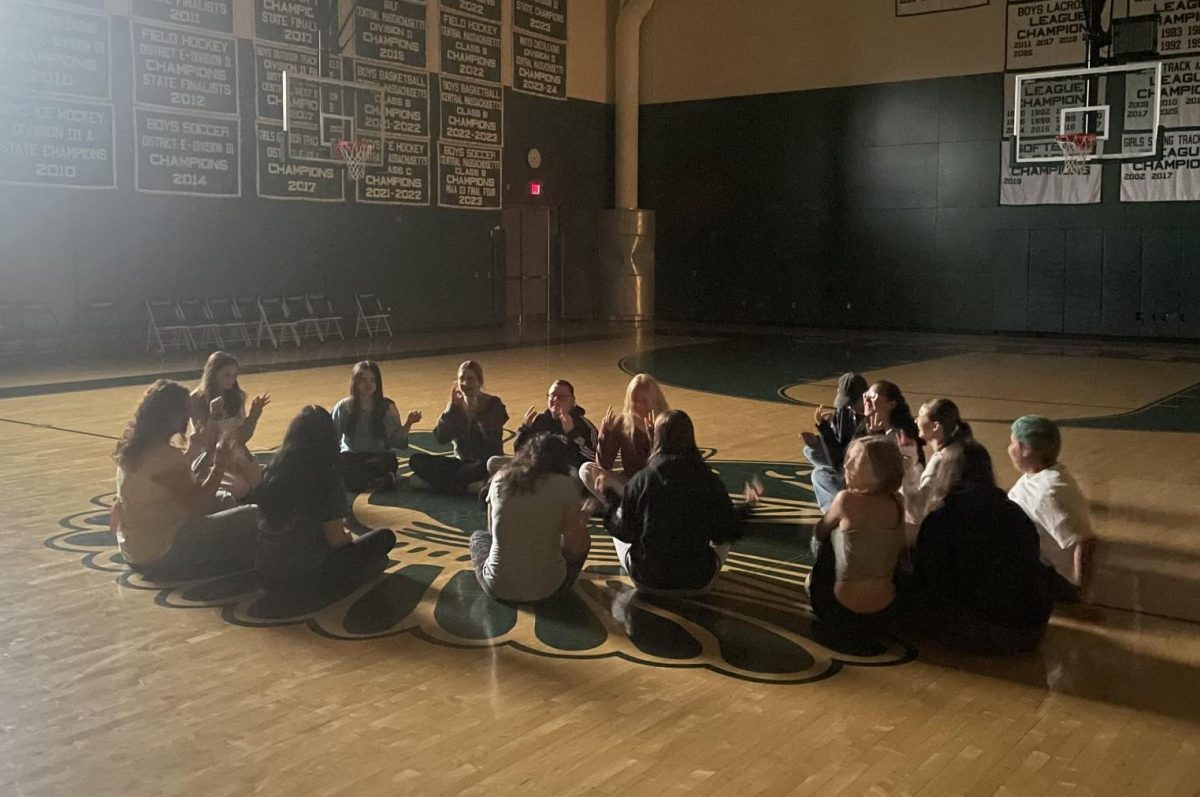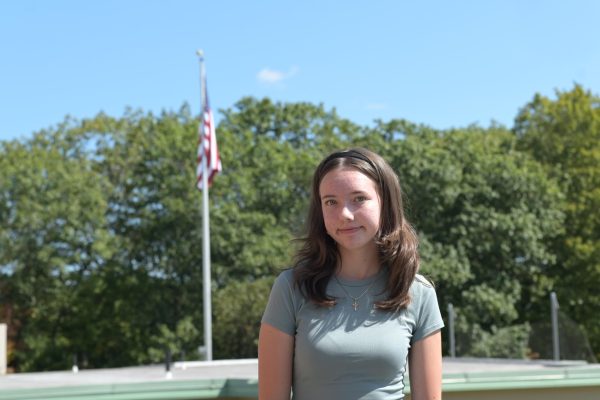You’re at the bookstore. Your mind can’t seem to make a decision. There are so many options. Nonfiction? Fiction? Is one better than the other?
Merriam-Webster’s dictionary classifies nonfiction as “writing or cinema that is about facts and real events.” It calls fiction, “something invented by the imagination or feigned.” Depending on the kind of person you are and your interests, one may stand out to you more than the other.
If you are the kind of person who really likes learning about new things, you might lean more towards nonfiction, but if you like escaping and living in an imaginary world, you’ll most likely like fiction better.
As stated by Forbes, “non-fiction revenues are soaring above fiction revenues.” This is in the adult genre category, so it sums up what books adults are reading.
These genres for teens, on the other hand, are not as straightforward. NeaToday says, “We’re in a golden age of nonfiction,” but according to a columnist named Jay Matthews on PLOS, “the books students choose to read are almost always fiction.”
At Barnes and Noble, people shop for books of both genres, but there is a significant difference in what these readers prefer.
At the Barnes and Noble in Nashua, New Hampshire, shoppers were asked their opinion on the topic. Which is better, nonfiction or fiction? There were 3 out of 4 people who said they liked fictional books better than nonfiction.
“[I] like things that aren’t super realistic,” one shopper said. She explained that she liked horror and fantasy books and a lot of Steven King.
Another shopper, however, said that she liked nonfiction better, but had recently taken up reading fiction too, “I just like learning,” she said. She enjoyed reading about climate science and other science-related books.
Many people said a mix of things, liking genres such as thrillers, mystery, and historical fiction. Two people explained their liking of Steven King and his books, while one shopper said she liked an author named Riley Sager.
In the store, there were lots of people in the different sections, most looking at fictional books and a few looking at nonfiction books. Although that day at the store was not busy, there were still enough people to notice that more were looking in the fiction section.
The majority of people preferred fictional books, but some liked nonfiction, though they had read fictional books as well.
In Oakmont’s library, Mrs. Morin explained how there is an uneven percentage of nonfiction books to fiction books.
The nonfiction variety in the library takes up to 72% of the library, and the fiction books are up to 28%. She explained how the difference should be more in the 60% to 40% range.
She also gave her own opinion on the topic, “I like both,” she said, “…[but I] lean more towards fiction…I get into phases.”
UCL News wrote that fictional books have a big impact on your reading level as well, “research shows that teenagers who read more fiction (novels, narratives and stories) over magazines, comics, non-fiction and newspapers, have reading skills more than six months ahead of their peers who rarely read fiction books. They also tend to read more on average per week than other groups.”
A professor named John Jerrim at UCL Institute of Education called this trend a “fiction effect,” saying that these students tend to score higher on reading tests.
Reading fictional books not only expands your imagination and creativity it will most likely also expand how good you do in ELA classes.



